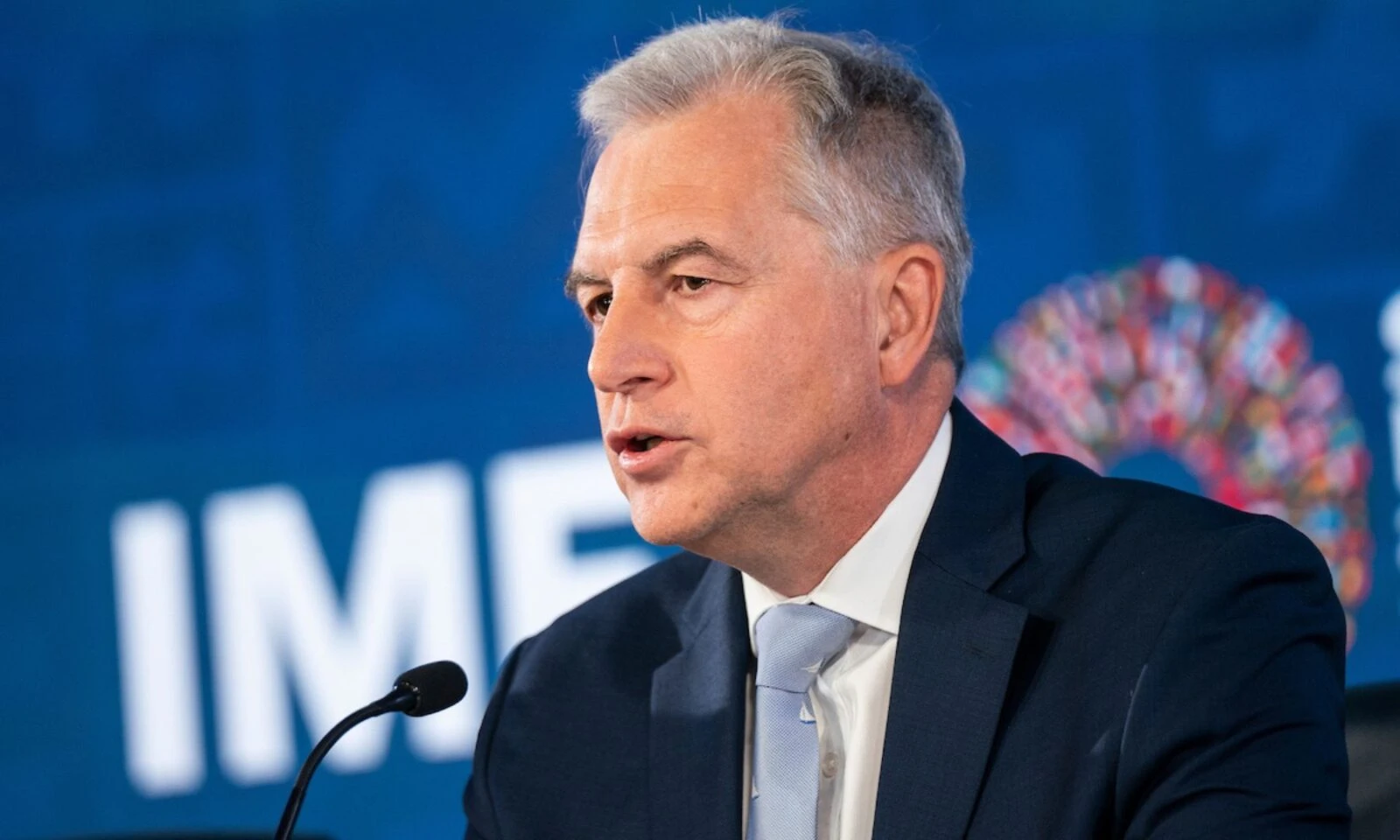Türkiye’s strong momentum drives upward trajectory for coming periods: IMF
 The International Monetary Fund (IMF) logo is seen on the facade of its office building in Chicago, United States, on May 14, 2019. (Adobe Stock Photo)
The International Monetary Fund (IMF) logo is seen on the facade of its office building in Chicago, United States, on May 14, 2019. (Adobe Stock Photo)
International Monetary Fund (IMF) European Department Director Alfred Kammer said on Friday that the strong momentum observed in the second half of last year contributed to the IMF’s decision to raise Türkiye’s 2025 growth projection, while praising the country’s ongoing economic program.
In its World Economic Outlook report published on April 22, the IMF upgraded Türkiye’s growth forecast for 2025 from 2.6% to 2.7%, projecting that the country’s economic growth would bottom out this year before accelerating to 3.2% in 2026, supported by recent shifts in monetary policy.
| Indicators | 2025 | 2026 |
|---|---|---|
| Current account balance-to-GDP ratio | -1.2% | -1.2% |
| Inflation forecast | 35.9% | 22.8% |
| Unemployment rate | 9.4% | 9.2% |
| Economic growth | 2.7% | 3.2% |
However, the IMF simultaneously revised its inflation forecasts upward, predicting an annual inflation rate of 35.9% for 2025 and 22.8% for 2026.
Responding to a question from an Anadolu Agency correspondent during a press briefing on European economies held as part of the IMF and World Bank Spring Meetings, Kammer stated, “Although it is a small increase, it is important in offsetting the adverse impact of tariffs and uncertainties on the outlook.”

On April 2, U.S. President Donald Trump announced reciprocal tariffs aimed at addressing the country’s trade deficit, imposing broad levies on major trade partners such as China and the European Union, and escalating trade tensions that heightened global uncertainties.
‘Türkiye’s disinflation process must accelerate’
Kammer also noted that the Turkish government’s disinflation efforts are progressing, emphasizing that the country’s economic team is committed to implementing its disinflation program.
He underlined that the pace of disinflation needs to accelerate, which would require a tighter combination of macroeconomic policies. Kammer stressed that a key pillar of this effort should be a more restrictive fiscal policy.
“Why do we advocate for this? Because the longer it takes to bring inflation down, the longer the economy remains vulnerable and exposed to unpredictable shocks,” Kammer said. “Therefore, the disinflation program must proceed more rapidly, with tighter fiscal policy at its core.”
Türkiye’s annual inflation continued its downward trend for the tenth consecutive month in March, falling to 38.1% from a peak of 74.45% in May 2024.



